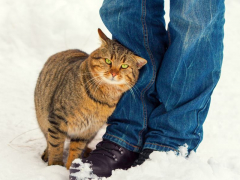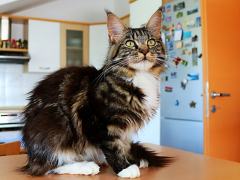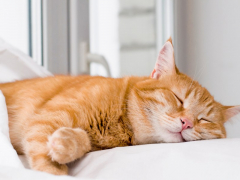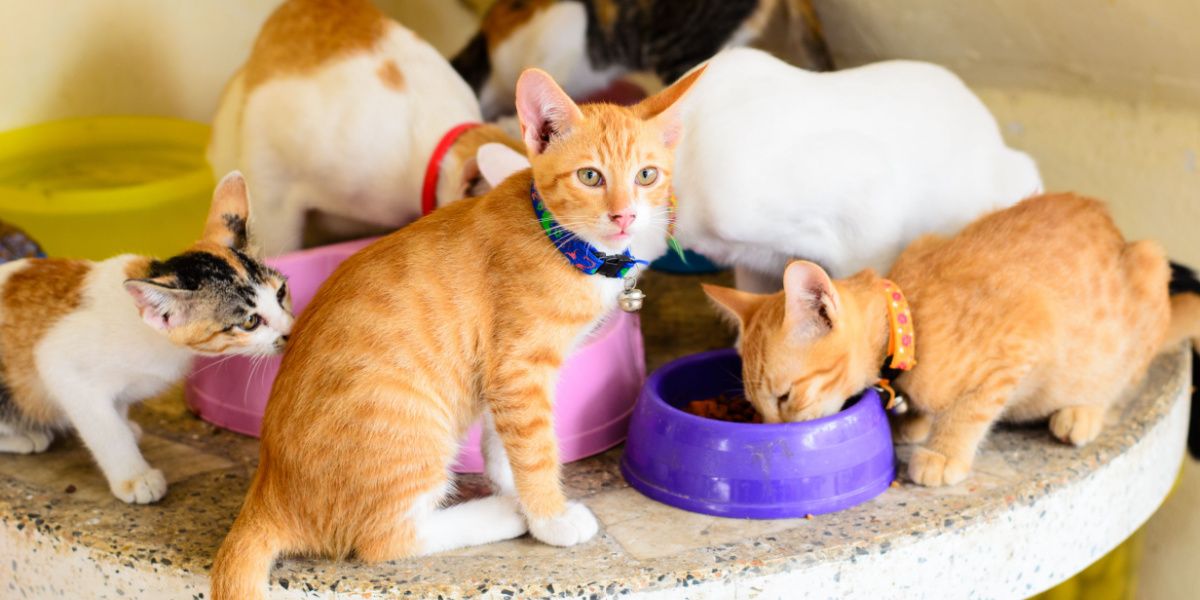
Domestic cats, like many feline species, are a mix of social and solitary. They are territorial and hunt alone rather than in packs, but also participate in social rituals such as collaborative feeding of young kittens, social play, and allogrooming. So, it is common for single cat owners to wonder if cats get lonely without the company of other cats.
It can be difficult to tell if a solitary cat is happy on their own, or if they crave feline company. Often, it comes down to individual preferences. For example, young, active kittens have greater social needs than older adults.
This article explores the social needs of cats, and whether you should consider getting a friend for your cat.
Cats are social creatures, but are also territorial and have individual social needs. Some cats are happy to have other cats as companions, while others prefer to be solitary. There are steps that cat owners should take when introducing a new cat into a home that already has a cat, in order to avoid stress and conflict.Quick Overview
The Social Structure Of Feral Cats
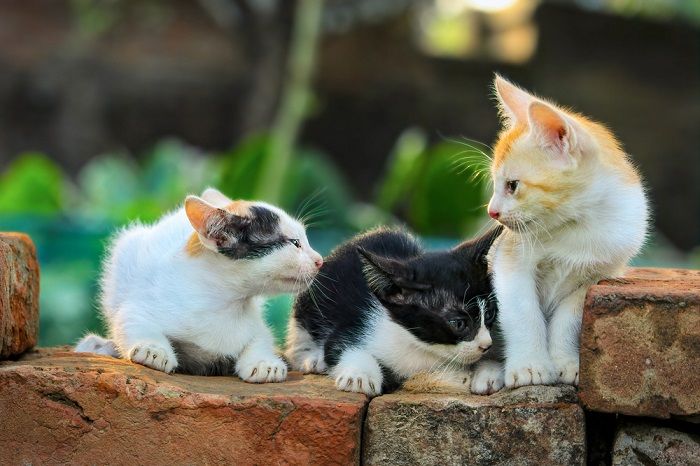
When forming social bonds, kittens will most likely bond with other kittens from the same litter.
Felines are generally solitary hunters and eaters and have a highly territorial nature. These facts do not lend themselves to developing great social skills, and many feline species, such as tigers, are often solitary.
However, our domestic cats do have the potential to be social animals, just as lions, who live in groups of other lions called “prides.” Unlike dogs, who live in large packs in the wild, feral cats often form small colonies. These colonies are groups of cats that live near a known food source.
These groups are made up of female cats and kittens. They co-parent and share resources. These colonies cooperate best when the cats are familiar with each other, and there is plenty of food to go around. Close bonds can form between cats, though most often between kittens and their mother, and between kittens of the same litter.
Male cats do not tend to be part of these groups and are more likely to be loners. Their territory may overlap with that of a colony, but male territories are considerably larger, depending on the availability of food and females.
Also Read: 15 Facts You Should Know About Feral Cats
How Does This Compare To Domestic Cats?
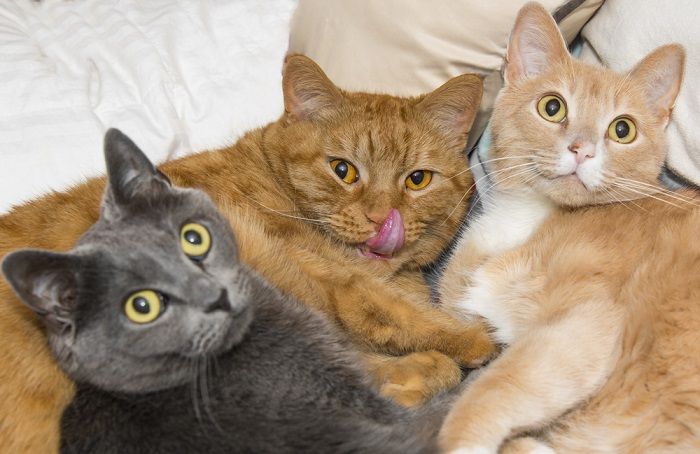
Cats that remain playful in adulthood are more likely to enjoy the companionship of other cats.
Our cat companions have remained similar in many ways to their wildcat ancestors. However, pet cats have also adapted to live in blissful domesticity with their human companions. Feline behavior can be quite flexible – genetics, early environment, and social influences all play a role in the temperament and personality of each individual cat.
Cats certainly enjoy companionship: with their own kind, with another pet, or with a human family member. Many cats appear to be social, actively seeking out a feline or human companion. Still, other cats are happy to be solitary.
Kittens are more likely to have social needs. They require playmates to help them learn about social interaction and hunting skills and provide both physical and mental stimulation at this highly active age. Kittens form special bonds with their littermates, but can also bond with kittens from separate litters.
As kittens transition into adulthood, some maintain this youthful love of play and social interaction. Others are happy in single-cat households.
Also Read: How To Introduce A New Kitten To An Older Cat
Are Cats Happier With Another Cat?

Kittens tend to form more positive bonds with a new cat in the home than adult cats, although it is always individual to each cat.
This is a tough one, as it is really hard to predict which cats will get along together, and which ones would be happier alone. Some cats show signs of loneliness, such as hiding away, giving a plaintive meow, or displaying clinginess to their owners. There can also be symptoms of boredom in single cats, such as destructive behavior and excessive vocalization.
Cats most likely to benefit from a feline companion are those who are naturally playful or social, have experience being with other cats or kittens when young, and are not showing signs of stress or anxiety.
Kittens often bond better with a new cat than an adult cat would, so early introductions are best. Cats who are left alone for long periods of time also benefit from companionship, especially if they display separation anxiety or destructive behavior – although this is not a cure for these complex behavioral issues.
Adult cats who have been solitary for much of their lives, or who were separated early from their mother and litter mates may find a new cat to be difficult addition to the household. Cats who show signs of stress, such as hiding away, litter box issues, excessive grooming, or loss of appetite may find a disruption to their schedule and environment by a second cat an added stress rather than a pleasure.
Also Read: 5 Reasons You Should Get A Second Cat (And 3 You Shouldn’t)
How Do I Know if My Cat Is Lonely?
Cats are expressive little creatures and can show you how they feel when you pay attention. There are some warning signs that will allow you to spot if your cat is becoming bored and lonely.
Cats may communicate loneliness through various behavioral cues. Signs may include increased vocalization, destructive behavior like scratching or chewing, changes in eating habits, excessive sleeping, avoidance or clinginess, altered grooming patterns, or displays of aggression or withdrawal.
So Is It Better to Have 1 or 2 Cats?
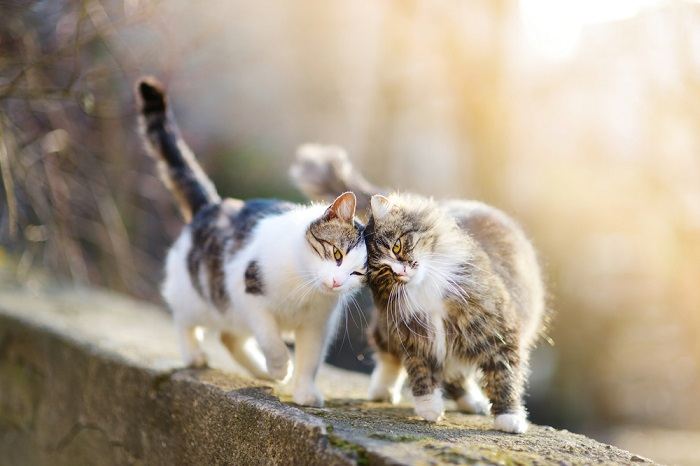
Cats, like people, are individuals. Knowing and understanding your cat will help you decide if they need a feline companion or not.
Cats can certainly be happy as a single cat, but they are a social species, and many will appreciate having a companion. Introducing a new cat can be daunting, but taking the process slowly and step-by-step is the best route to success.
Keep in mind that cat behavior is a funny mix of solitary and social, which makes their inter-feline relationships difficult to predict. Mother and kitten family groups tend to be highly social, but adult cats (especially males) are often more solitary so some adult cats might find it difficult to get along with a new cat.
Also Read: 12 Signs Of An Extremely Happy Cat
Frequently Asked Questions
Is it OK to have just one cat?
Cats can be happy as solitary pets but need social interaction from their owners to fulfill their social needs. They also require plenty of enrichment if left alone for a period of time, such as toys, puzzle feeders, and climbing trees.
Do cats get bored without another cat?
Cats need social interaction of some form, either through another pet or their owners. They also need to be kept active both physically and mentally to prevent boredom. If they are solitary, they need some active playtime and enrichment such as a cat tree or puzzle feeder and some human company.
Does a single cat get lonely?
Cats are social creatures and need some form of interaction. They can happily exist as single pets in their home but require plenty of human companionship, play, and enrichment in their home environment.
 Fact checked by
Fact checked by


